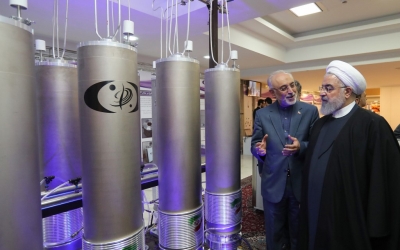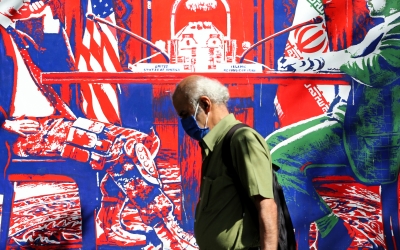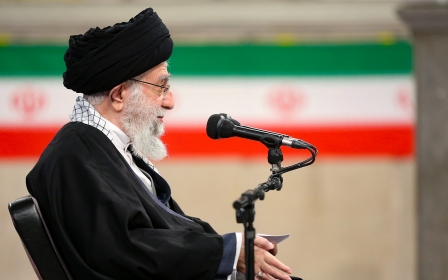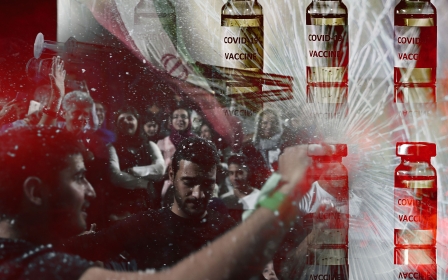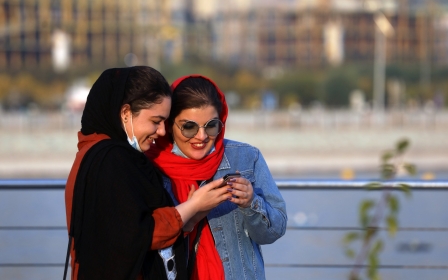Iranian press review: Tehran says Macron can't be trusted over US-Iran talks
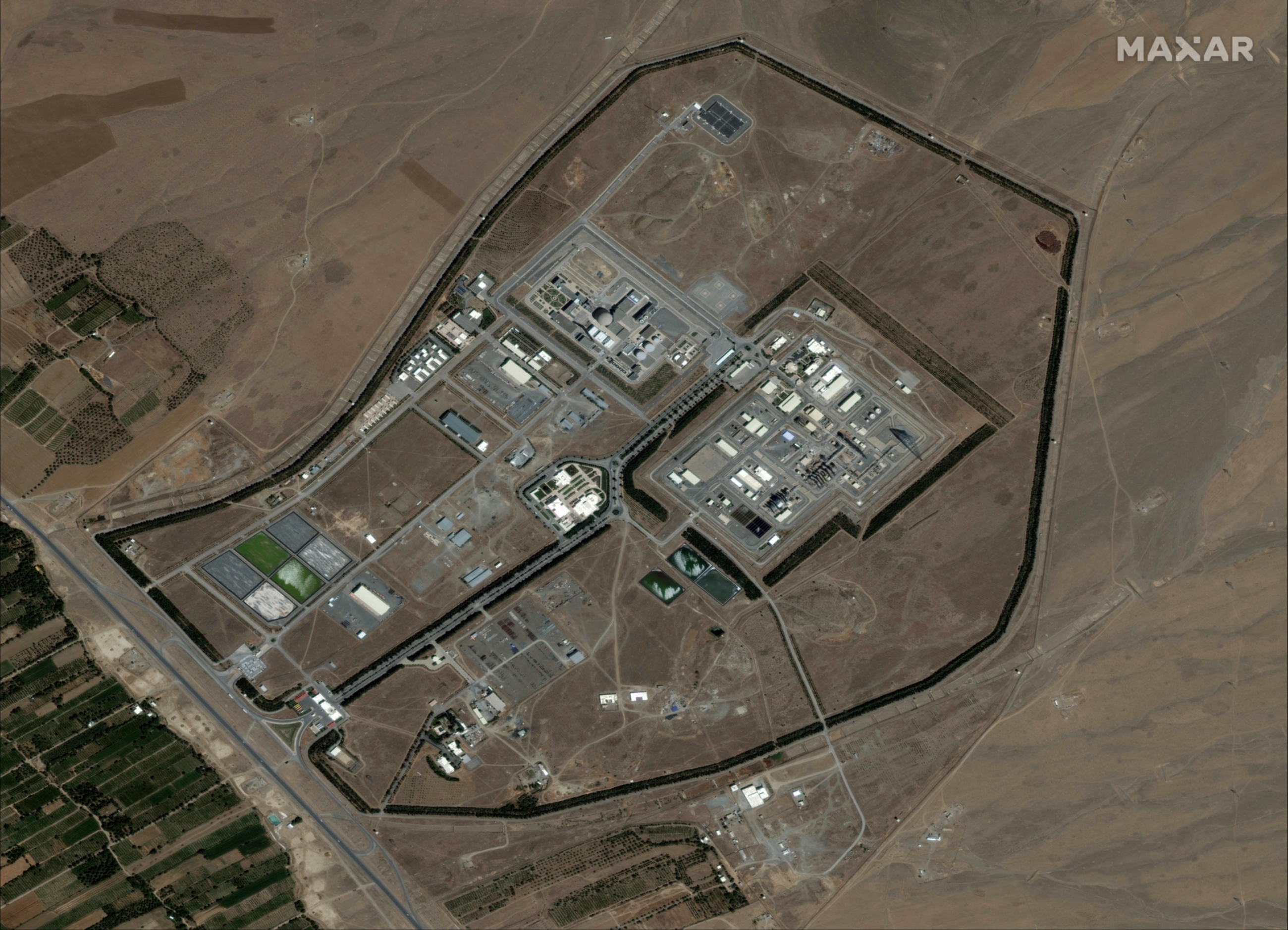
Tehran will not trust France's mediation in new nuclear talks
Iranian foreign policy experts and politicians from across the political spectrum have warned President Hassan Rouhani about the role that French President Emmanuel Macron is eager to play in mediating between Tehran and Washington.
Last week, Iran's Foreign Minister Mohammad Javad Zarif said that the European Union could facilitate mediation between the US and Iran in talks for a return to the 2015 nuclear deal between Tehran and six world powers, which Trump’s US administration withdrew from in 2018.
Macron was quick to respond to the call, saying that he was ready to be an "honest broker" between Tehran and Washington. However, Iranian officials have not responded to his offer.
On 29 January, in another comment, Macron said that any new talks with Iran should be held with the presence of Israel and Saudi Arabia, a proposal that Tehran immediately rejected.
Following Macron's attempts to claim a role in Iran's nuclear deal, Iranian analyst Hassan Beheshtipour warned that France is pursuing its own interests and recommended that Tehran and Washington carry out direct talks.
"France is not an honest mediator at all," Beheshtipour was quoted by the Aftab daily as saying.
"France knows that the US is about to change its policies toward Iran. All France wants is to reach the demands [about Iran's missile programme] that it did not gain in the 2015 negotiations.”
In an analytical piece for the Donya-e-Eqtesad daily, Iranian foreign policy expert Morteza Makki scrutinised France's role in securing the interests of Israel and Saudi Arabia in negotiations that led to the 2015 deal.
During the negotiations, Paris was the only party that demanded harsher stances against Iran. However, when former US President Donald Trump abandoned the nuclear deal, Macron offered Iran $15bn in credit lines to save the agreement, which the US blocked.
"Neither in the Middle East nor the EU does Paris have a status to play a central role in reviving the nuclear deal negotiations, and that's the reason for Macron's paradoxical moves in regards to Iran's nuclear deal," Makki wrote.
Meanwhile, the Kayhan daily, close to Iran's Islamic Revolutionary Guard Corps (IRGC), attacked Rouhani's administration for stressing its readiness to return to the nuclear deal.
According to the Kayhan, which represents Iranian political factions that oppose negotiations with the US, Rouhani's cabinet has been both passive and over-excited in its welcoming of new US President Joe Biden.
The daily also wrote that France, under the influence of Zionist lobbies, played the "bad cop" role in the 2015 negotiations with Iran in its attempt to secure Riyadh and Tel Aviv’s interests in the region.
Tehran inaugurates factory for shoulder-fired missiles
Mohammad Bagheri, Iran's chief of staff for the armed forces, has inaugurated the country's first factory to produce shoulder-fired surface-to-air missiles, local media reported.
During the inauguration ceremony, Bagheri, an IRGC commander, claimed that the factory is the only one of its kind in the Middle East, adding that only four other countries in the world have the technology to mass-produce such missiles.
"We imported the first generations of this missile from other countries," he was quoted by local media as saying.
"However, now a more developed generation of the missile, which can hit targets with different velocities, is being produced in the country.”
Bagheri did not provide further details on the weapons, nor did he name other countries producing the missiles.
As part of the ceremony, Iran's defence minister, Amir Hatami, said Iran would deploy the new generation of homegrown shoulder-fired missiles in the Iranian army in its defence against drones, helicopters and cruise missiles.
Unofficial economy worth over $20bn a year
Iran's former minister of roads and urban development has revealed in an interview that Iran's unofficial economy, formulated to get around international sanctions, is worth between $20bn and $25bn annually.
Abbas Ahmad Akhoundi, who resigned from Rouhani's cabinet in 2018 and returned to academia as an assistant professor of political science, told ISNA news agency that during the past 15 years, a well-organised transnational network has been developing in Iran to bypass international sanctions.
According to Akhoundi, this network began its operation in 2006, when the United Nations imposed its first sanction on Tehran, due to Iran's nuclear programme.
Akhoundi said this network has deepened corruption in all fields of politics and economy in the country, making Iran's official economy dysfunctional.
"To go around the sanctions, the government had no other way than taking parts of the economy underground," he said.
"As the US increased sanctions [against Iran], everything has become part of the underground economy, because official export or import is impossible.
“Now, no matter what a merchant wants to export, whether it’s pistachio, petrochemical products, steel, or carpets, it is only possible through the unofficial economy," he added.
The former minister also stressed that a group of affluent Iranians have been opposing any attempts to lift the US sanctions because of the profit that well-connected individuals gain through the underground economy.
Criticising Iranian politicians who give an excuse to the US to increase sanctions against Iran, Akhoundi said: "The current policy will make Iran's unofficial economy bigger, which is equal to the dominance of corruption, more poverty and a larger number of unemployed in the country."
*Iranian press review is a digest of reports that are not independently verified as accurate by Middle East Eye.
Middle East Eye delivers independent and unrivalled coverage and analysis of the Middle East, North Africa and beyond. To learn more about republishing this content and the associated fees, please fill out this form. More about MEE can be found here.


